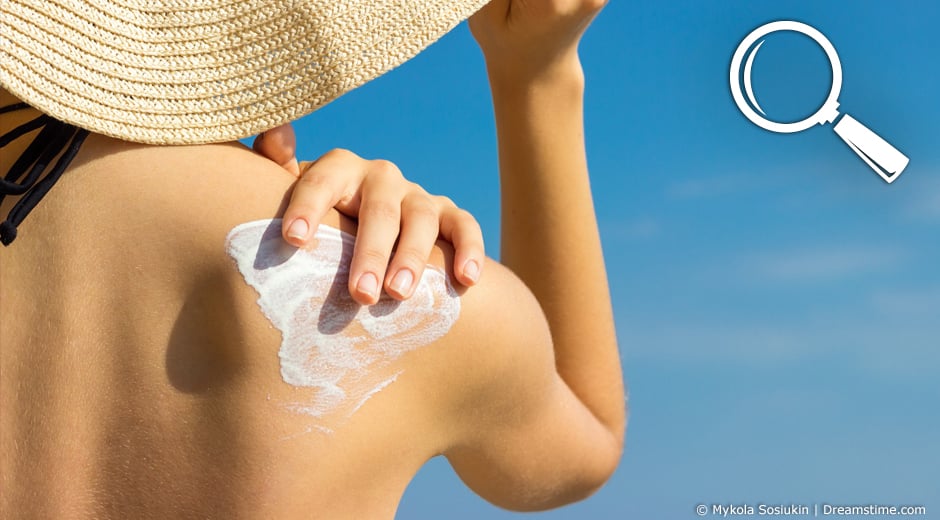Are You Sure You're Using Sunscreen Every Day? The Unexpected Dangers Revealed
Sunscreen, a health move or hidden danger? Discover the little-known risks of daily use and how to protect your skin intelligently.
HEALTHBLOG-LIST
2/27/20253 min read


In our relentless quest for youthful and protected skin, sunscreen has become a daily ally. But what if this seemingly beneficial gesture hid some dark areas? While we are conditioned to believe that more sun protection is synonymous with better health, it is crucial to take a closer look at the potential dangers of daily and sometimes excessive use of these products. This article lifts the veil on the little-known aspects of sunscreen and guides you towards informed and balanced sun protection.
In brief
Daily use of sunscreen can lead to vitamin D deficiency, which is essential for bone and immune health.
Some chemical sunscreens can disrupt the endocrine system and have long-term adverse health effects.
Sunscreens may contain allergenic or irritating ingredients for sensitive skin.
Excessive sun protection can reduce the skin's natural ability to defend itself and adapt to the sun.
It is important to adopt a balanced approach to sun protection, prioritizing moderate sun exposure and using sunscreen in a targeted and reasoned manner.
The Hidden Dangers Behind the Sunscreen Tube
1. Vitamin D Deficiency: The Protection Paradox
Vitamin D, often called the "sunshine vitamin," is synthesized by our skin under the effect of UVB rays. It plays a fundamental role in calcium absorption, bone health, the immune system, and even the prevention of certain chronic diseases. However, daily use of sunscreen, by blocking UVB rays, can hinder this natural production of vitamin D.
Studies have shown that regular use of sunscreen, even with a high protection factor, can significantly reduce vitamin D synthesis in the body (Source: National Institutes of Health). This deficiency can have long-term consequences, including an increased risk of osteoporosis, muscle weakness, and immune disorders.
2. Endocrine Disruptors: A Chemical Cocktail Under Surveillance
Many conventional sunscreens contain chemical filters such as oxybenzone, octinoxate, and homosalate. These substances are suspected of acting as endocrine disruptors, meaning they can interfere with the hormonal system and potentially have adverse effects on reproduction, development, and overall health (Source: Environmental Working Group).
Although research is still ongoing to fully assess the impact of these substances on human health, the precautionary principle encourages caution. It is important to note that alternatives exist, including mineral filters (zinc oxide and titanium dioxide), which are considered safer for health and the environment.
3. Allergies and Irritations: When Protection Becomes Aggression
The skin, a sensitive and complex organ, can react negatively to certain components of sunscreens. Fragrances, preservatives, chemical filters... the list of potentially allergenic or irritating ingredients is long. Sensitive, reactive, or eczema-prone skin is particularly vulnerable to these reactions.
Redness, itching, skin eruptions... the symptoms of an allergy or irritation to sunscreen can be unpleasant and paradoxically harm skin health. It is therefore essential to choose hypoallergenic, fragrance-free, and dermatologically tested formulas, especially if you have sensitive skin (Source: American Academy of Dermatology).
4. Dependence and Weakening of the Skin: The Risk of "Overprotection"
Our skin has natural defense mechanisms against the sun, including the production of melanin (the pigment that tans the skin) and the thickening of the stratum corneum. Excessive and systematic use of sunscreen can disrupt these mechanisms and make the skin less able to protect itself naturally.
By systematically blocking UV rays, we deprive the skin of the "stimulation" necessary to activate its natural defenses. In the long term, this could paradoxically make the skin more vulnerable to external aggressions and premature aging. The idea is not to give up all sun protection, but to find a happy medium and let the skin play its natural protective role when exposure is moderate.
FAQ: Answers to Your Frequently Asked Questions
Q: Should we stop using sunscreen?
A: No, sunscreen remains an essential tool for preventing sunburn and skin cancer, especially during prolonged or intense exposure. The goal is to adopt a reasoned and targeted use, rather than systematic and excessive application.
Q: What is an alternative to daily sunscreen?
A: Prioritize physical protection measures: covering clothing, hat, sunglasses, seeking shade during the hottest hours. Expose yourself moderately to the sun outside of these hours to promote vitamin D production. Reserve sunscreen for situations of high exposure or when physical protection is not sufficient.
Q: How to choose a safer sunscreen?
A: Opt for mineral sunscreen (zinc oxide and titanium dioxide), fragrance-free, without controversial preservatives and hypoallergenic. Favor brands that are transparent about the composition of their products and committed to a health and environmentally conscious approach.
Conclusion: For Informed and Responsible Sun Protection
The use of sunscreen is not a trivial gesture. While it remains essential in certain situations, daily and systematic application may have little-known drawbacks. The challenge is to find a balance, prioritizing moderate sun exposure and using sunscreen in a targeted and reasoned way. Do not hesitate to consult a dermatologist for personalized advice tailored to your skin type and lifestyle.
And you, what is your sun protection routine? Share your tips and questions in the comments!
